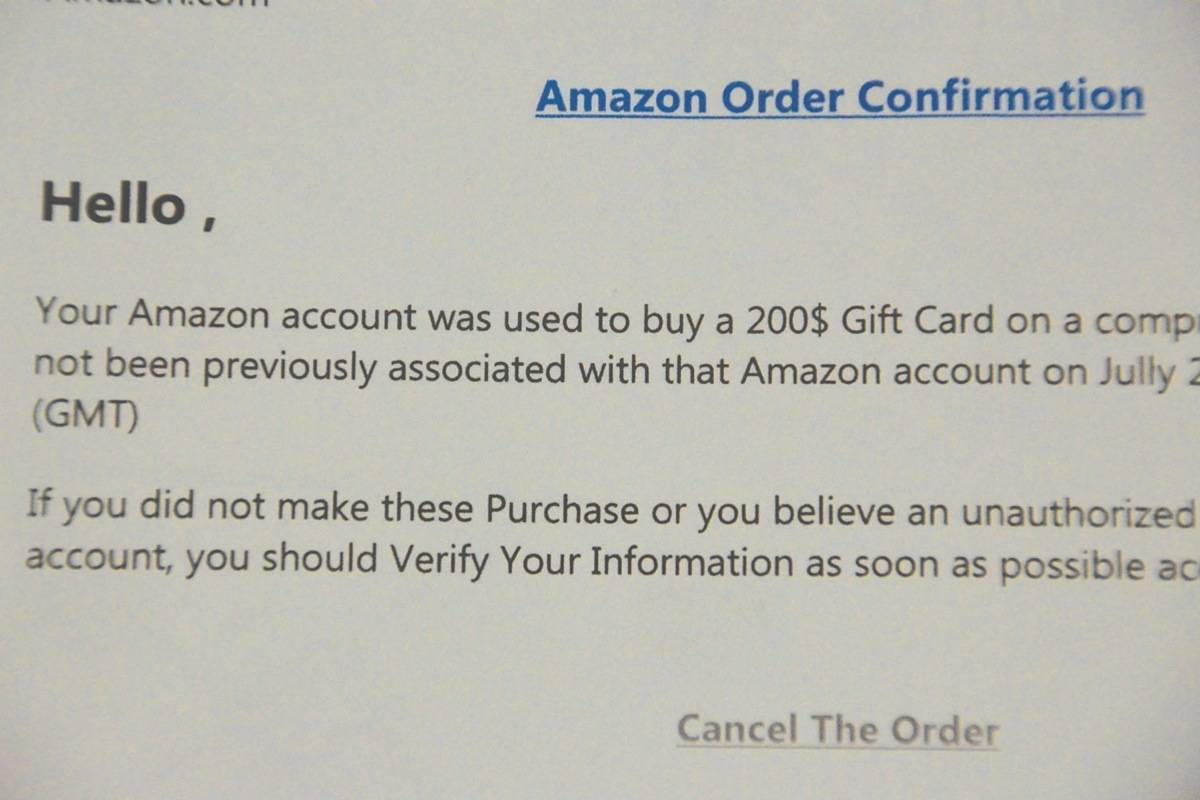While the internet and email have both made the world a smaller place, there’s another thing they’ve made easier than ever: fraud.
A concerned reader of the Wetaskiwin Pipestone Flyer brought in a questionable email she received this week.
The email claimed to come from online retail giant Amazon, and pretended to be a notice from the company notifying the Pipestone flyer reader she’d had her Amazon account used for a $200 purchase. The email stated the reader only needed to click a link to clear up the issue.
Coincidentally, the editor of The Pipestone Flyer also received this fraudulent message in his company email (stu.salkeld@pipestoneflyer.ca) this very week, despite the fact the editor doesn’t even have an Amazon account.
Additionally, this past week the editor also received fraudulent emails pretending to be from Walmart (they claimed a recent Walmart online purchase was rejected despite the fact no such purchase was made) and one from LinkedIn (the editor doesn’t belong to LinkedIn). Some of the fraud emails claim you owe the company money.
Generally speaking, these types of fraudulent emails are a form of “phishing,” where the thief will send out hundreds to thousands of emails to people like the Pipestone Flyer’s reader and editor pretending to represent a legitimate company. The link in the email goes to a website that’s designed to either infect your computer with malicious software or steal your personal banking information (or both).
How online thieves manage to obtain legitimate email addresses is a matter of great debate. However, there are a few things readers can do to protect themselves.
Check the email address of the organization which contacted you. If, for example, it’s a credit card company, the address should have the company’s name it in, not just a long list of z’s and numbers or a person’s individual name (the email dropped off here had the contact address of Nathalie.louis@hotmail.com, Amazon representatives won’t use a web-based hotmail address).
Second, emails from legitimate companies won’t have elementary school spelling errors in them. For example, the message submitted by our reader stated, “If you did not make these Purchase.” Amazon won’t have a grammatical error like that in their correspondence.
Lastly, no major company like Amazon or Walmart will ask you to pay them with gift cards. That request right there should set off alarm bells.
Any Pipestone Flyer readers who receive questionable emails or letters like those above should simply delete them or throw them in the trash.



